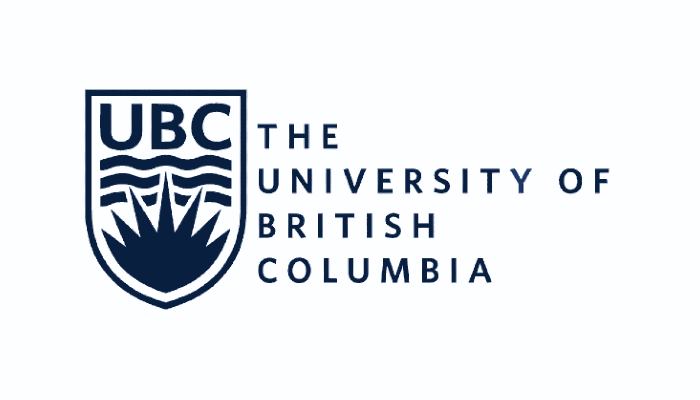Study Botany Abroad: Unlocking the World of Plant Sciences
Botany, the scientific study of plants, is a fascinating field that explores everything from microscopic plant cells to vast ecosystems. For Indian students aspiring to delve into this green world of science, studying Botany abroad offers unparalleled opportunities for hands-on research, advanced labs, and global exposure. Whether you're passionate about plant genetics, ecology, or sustainable agriculture, international programs can equip you with cutting-edge knowledge and skills. This page guides you through the essentials of pursuing a Botany degree overseas, tailored for ambitious students from India.
Why Choose Botany as Your Study Abroad Path?
Botany isn't just about memorizing plant names—it's about understanding how plants sustain life on Earth. With climate change and food security becoming global priorities, botanists are at the forefront of innovation. Studying abroad enhances your perspective by immersing you in diverse ecosystems, from tropical rainforests to arid deserts.
- Global Relevance: Plants influence agriculture, medicine, and environmental conservation. Abroad, you'll tackle real-world issues like biodiversity loss, which is crucial for India's own ecological challenges.
- Advanced Research Facilities: International universities boast state-of-the-art greenhouses, DNA sequencing labs, and field stations—resources often limited in India.
- Career Boost: An international degree opens doors to roles in research, biotech, and NGOs, with higher salaries and global mobility.
- Personal Growth: Living abroad builds independence, cultural adaptability, and networking skills, valuable for Indian students navigating competitive job markets.
Fun Fact: Did you know that many life-saving drugs, like aspirin from willow bark, originated from botanical discoveries? Your studies could contribute to the next breakthrough!
Top Destinations for Indian Students Studying Botany
Choosing the right country is key. Factors like English-taught programs, scholarship availability, and proximity to India make certain destinations ideal. Here's a curated list:
- United States: Home to Ivy League institutions with world-class botany departments. Expect diverse climates for fieldwork.
- United Kingdom: Prestigious universities like Oxford and Kew Gardens offer specialized programs. Short flight from India (8-10 hours).
- Australia: Focus on unique flora and conservation. Affordable living and post-study work visas appeal to Indian students.
- Canada: Emphasizes sustainable forestry and indigenous plants. Welcoming immigration policies for graduates.
- Germany: Tuition-free public universities with strong emphasis on plant biotechnology. English programs available.
For Indian students, the UK and Australia stand out due to cultural similarities and strong Indian diaspora communities, easing the transition from home.
Popular Botany Courses and Curriculum Overview
Botany programs abroad range from Bachelor's (BSc) to Master's (MSc) and PhD levels. Most are 3-4 years for undergrad and 1-2 years for postgrad. Curricula blend theory, lab work, and fieldwork, often including internships.
Core Subjects in a Typical Botany Degree:
- Plant Anatomy and Physiology: Study cell structures and how plants grow.
- Ecology and Biodiversity: Explore plant interactions in ecosystems.
- Genetics and Biotechnology: Learn gene editing for crop improvement.
- Mycology and Pathology: Investigate fungi and plant diseases.
- Ethnobotany: Cultural uses of plants, relevant for India's herbal traditions.
Many programs incorporate electives like sustainable agriculture or climate-resilient crops, aligning with India's Green Revolution legacy.
Sample Course Structure for a BSc in Botany (3 Years)
| Year | Semester 1 | Semester 2 |
|---|---|---|
| Year 1 | Introduction to Biology Basic Plant Science |
Chemistry for Botanists Intro to Ecology |
| Year 2 | Plant Physiology Genetics |
Field Botany Plant Pathology |
| Year 3 | Advanced Ecology Biotechnology |
Research Project Elective (e.g., Conservation) |
For Master's programs, expect a thesis on topics like "Impact of Climate Change on Indian Medicinal Plants," allowing you to bridge global and local knowledge.
Eligibility Criteria and Application Process for Indian Students
Admission requirements vary by country and university, but here's a general guide:
- Academic Qualifications: For BSc, 10+2 with Science (Biology/Physics/Chemistry) and minimum 60-70% marks. For MSc, a relevant Bachelor's with 55%+ GPA.
- English Proficiency: IELTS (6.0-7.0 overall) or TOEFL (80-100). Some universities accept Duolingo for Indian applicants.
- Entrance Exams: GRE for US programs; not always required elsewhere. Indian students may need to submit CBSE/ICSE transcripts.
- Documents Needed: Statement of Purpose (SOP) highlighting your passion for Botany, Letters of Recommendation (LORs) from teachers, CV, and passport.
- Visa Requirements: Student visa (Tier 4 for UK, F-1 for US). Proof of funds (INR 10-15 lakhs for first year) and genuine student intent are crucial.
Tip for Indians: Start applications 6-12 months in advance. Platforms like UCAS (UK) or Common App (US) simplify the process. Consult education agents in cities like Mumbai or Delhi for personalized guidance.
Career Opportunities After Studying Botany Abroad
A Botany degree abroad propels you into diverse, rewarding careers. With India's growing biotech sector (valued at $100 billion by 2025), returning home or staying abroad both offer bright prospects.
Key Job Roles and Salaries (Approximate, in USD):
- Botanist/Plant Scientist: $60,000-$90,000. Work in research labs or farms.
- Environmental Consultant: $50,000-$80,000. Advise on conservation projects.
- Biotech Researcher: $70,000-$100,000+. Develop GM crops at companies like Monsanto.
- Agricultural Officer: $40,000-$70,000. In government roles like India's ICAR.
- Academic/Professor: $50,000-$120,000. Teach and research at universities.
In India, alumni often join organizations like the Botanical Survey of India or startups in vertical farming. Post-study work visas (e.g., 2 years in Australia) allow you to gain experience before deciding to return.
Scholarships and Financial Aid for Indian Botany Students
Studying abroad can be costly (INR 15-40 lakhs per year), but scholarships make it accessible. Focus on merit-based and need-based options.
| Scholarship | Country | Amount (Annual) | Eligibility for Indians |
|---|---|---|---|
| Chevening Scholarships | UK | Full tuition + living | Postgrad, leadership potential |
| Fulbright-Nehru | US | $20,000-$50,000 | Master's/PhD, academic excellence |
| Endeavour Awards | Australia | AUD 10,000-15,000 | Undergrad/Postgrad, merit-based |
| DAAD Scholarships | Germany | €850/month | Postgrad, no tuition fees |
| Inlaks Shivdasani | Multiple | INR 10 lakhs | Indian citizens, arts/sciences |
Additional funding: Part-time jobs (20 hours/week on student visa), education loans from Indian banks like SBI (up to INR 50 lakhs at 9-11% interest). Apply early—deadlines are often November-February.
Tips for Indian Students Embarking on Botany Studies Abroad
Transitioning from India to international academia requires preparation. Here's how to thrive:
- Academic Prep: Brush up on English scientific terminology. Join online courses on Coursera like "Plant Biology."
- Cultural Adjustment: Expect differences in food and weather—pack Indian spices! Join Indian student societies for support.
- Fieldwork Readiness: Botany involves outdoor work; get comfortable with hiking and lab safety.
- Networking: Attend conferences like the International Botanical Congress. Connect with alumni via LinkedIn.
- Sustainability Focus: Leverage your Indian background in tropical botany to stand out in applications.
Success Story: Priya Sharma, an Indian MSc Botany graduate from the University of Melbourne, now leads a project on drought-resistant rice at IRRI in the Philippines—proving the global impact of such degrees.
Embarking on a Botany journey abroad is more than education; it's a commitment to nurturing our planet. With dedication, Indian students can bloom into international experts. Explore programs today and take the first step towards a greener future!



